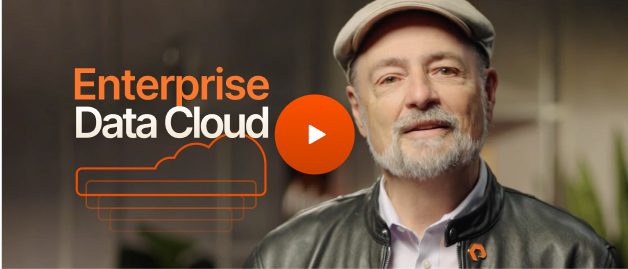최종 사용자 컴퓨팅(EUC)은 사용자가 원격으로 작동하는 데 필요한 데이터, 앱 및 서비스에 원격으로 액세스할 수 있도록 하는 기술, 정책 및 프로세스의 집합입니다. 간단히 말해, EUC는 조직이 보안 또는 성능을 저하시키지 않고 원격 근무의 모든 혜택을 누릴 수 있도록 합니다.
최종 사용자 컴퓨팅이 중요한 이유는 무엇일까요?
비즈니스 네트워크를 위한 원격 연결은 한때 직원 출장을 통한 업무의 편리성에 불과했습니다. 생산성, 민첩성 및 복원력을 높이고 작업자에게 더 큰 유연성을 제공하고자 하는 조직에게 필수적인 역량이 되었습니다.
최종 사용자 컴퓨팅은 어떻게 작동하나요?
최종 사용자 컴퓨팅에서 회사 데이터 및 애플리케이션은 클라우드에 상주하며, 모든 기기에서 사용할 수 있는 가상 데스크탑 인프라(VDI)를 통해 작업자가 액세스할 수 있습니다. VDI와 애플리케이션은 모두 하나의 서비스로 사용될 수 있습니다. VDI와 애플리케이션이 제공하는 경험은 디바이스나 위치에 관계없이 모든 작업자에 대해 표준화되어 있습니다.
최종 사용자 컴퓨팅을 지원하는 기술은 무엇일까요?
최종 사용자 컴퓨팅에는 다음과 같은 기술이 사용됩니다.
- 가상머신과 컨테이너를 통한 가상화를 통해 조직은 기본 인프라의 세부 사항을 추상화하고 최종 사용자의 하드웨어에 구애받지 않고 운영할 수 있는 EUC 솔루션을 구현할 수 있습니다.
- 클라우드/하이브리드 아키텍처는 서비스 호스팅, 스토리지 및 제공에 더 많은 옵션을 제공합니다.
- VDI는 클라우드를 사용하여 인터넷에 연결된 모든 디바이스에서 어디서나 액세스할 수 있는 중앙화된 플랫폼에서 대규모로 개별 데스크탑 환경을 프로비저닝하고 관리할 수 있습니다. 이 기술이 성숙함에 따라, 이러한 플랫폼은 자체 및 소규모 IT 부서의 인프라 공간을 원하는 고객에게 서비스로 제공됩니다.
- 서비스형 클라우드 기반 소프트웨어(SaaS)는 최종 사용자 컴퓨팅을 위한 스택을 완성합니다. VDI와 마찬가지로, 클라우드에 리소스와 소프트웨어를 배치하면 최종 사용자와 IT 부서가 적은 하드웨어로 더 많은 작업을 수행할 수 있습니다.
최종 사용자 컴퓨팅의 장점은 무엇일까요?
최종 사용자 컴퓨팅의 장점은 다음과 같습니다.
이동성과 유연성. 최종 사용자 컴퓨팅의 핵심 장점은 위치에 관계없이 개별 작업자 또는 전체 부서나 인력을 지원할 수 있다는 점입니다.
보안. 최종 사용자 컴퓨팅 서비스는 클라우드에 저장되고 중앙에서 관리되기 때문에 가장 민감한 데이터도 클라우드에 저장되어 사용자 장치와 관련된 취약점을 줄입니다. 또한 중앙 집중식 관리를 통해 침해 사고에 신속하게 대응하고 진단하기 쉽습니다. 강력한 인증 프로세스가 유지되는 한, 더 나은 보안은 최종 사용자 컴퓨팅의 장점입니다.
민첩성. 엔드 유저 컴퓨팅은 빠르게 확장 및 축소할 수 있는 기능을 제공하며, VDI를 새로운 근로자에게 프로비저닝할 수 있습니다. IT 부서에 중요한 최종 사용자 컴퓨팅을 통해 기술 팀은 새로운 애플리케이션을 쉽게 도입하고, 기존 애플리케이션을 업데이트, 테스트 및 반복할 수 있습니다.
비용. 엔드 유저 컴퓨팅은 간소화된 중앙 집중식 관리와 실제 사용 및 필요에 따라 적절한 규모의 프로비저닝 기능을 통해 비용을 절감하며, 이는 대규모의 초기 투자가 아닙니다. 또한, 작업자에게 씬 클라이언트 디바이스만 제공하거나 자체 디바이스를 사용할 수 있게 하면 하드웨어 비용을 절감할 수 있습니다.
협업. 협업을 위한 최종 사용자 컴퓨팅의 장점은 클라우드 컴퓨팅의 장점과 겹칩니다. 예를 들어, 쉽고 안전한 공유, 간소화된 버전 관리, 동기 및 비동기 작업을 모두 지원하는 기능 등이 있습니다.
애플리케이션/OS 관리. 소프트웨어 라이선스 추적 및 유지는 복잡하고 시간이 많이 소요될 수 있습니다. 엔드 유저 컴퓨팅은 엔드 유저로부터 라이선스를 분리하여 중앙 집중식 라이선스 관리를 가능하게 함으로써 프로세스를 간소화합니다. 또한, 최종 사용자 컴퓨팅은 기업이 최종 사용자 디바이스를 최신 OS 업데이트와 동기화해야 하는 부담을 덜어줍니다.
최종 사용자 컴퓨팅을 위한 현대적인 인프라
EUC는 전혀 새로운 것이 아니지만, 현대적인 VDI 구축이 필요한 데이터는 그 어느 때보다도 까다로웠습니다. 조직은 이를 지원하는 기반 인프라만큼 민첩합니다. 퓨어스토리지의 VDI 솔루션이 어떻게 포괄적인 데이터 서비스, 간단한 관리 및 손쉬운 확장을 통해 현대적인 VDI 경험을 제공하는지 알아보세요.


